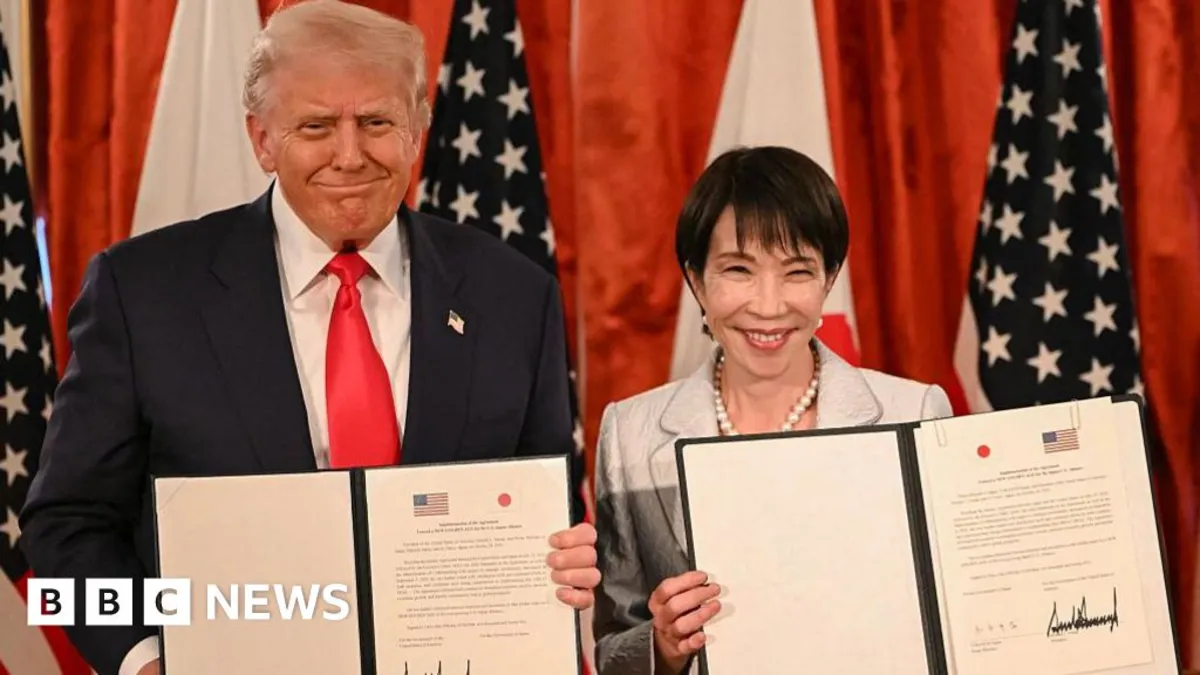
In a significant move aimed at diversifying the supply of rare earths, US President Donald Trump has signed a series of agreements during his recent Asia visit. This critical sector has long been dominated by China, making these deals with countries like Japan, Malaysia, Thailand, Vietnam, and Cambodia pivotal in reshaping the global rare earths landscape. While the specifics of these agreements vary, they are all geared towards reducing reliance on Chinese minerals essential for advanced manufacturing, including electric vehicles and smartphones.
The newly signed agreements aim to lock in trading partners with the United States, serving as a strategic effort to diminish dependence on China, especially ahead of a critical meeting with Chinese leader Xi Jinping. Experts believe that challenging Beijing's current control over rare earths will be a long and costly endeavor. According to Patrick Schroder, a senior research fellow at the Environment and Society Centre at Chatham House, establishing new mines and processing facilities in regions such as Australia, the United States, and Europe entails significantly higher capital costs, stringent environmental regulations, and elevated labor and energy expenses compared to China.
While it remains unclear if the previously agreed $550 billion US investment with Japan will factor into the rare earths deal, US Commerce Secretary Howard Lutnick is set to discuss these details with Japanese companies during his upcoming visit. This marks a critical turning point in the ongoing US-China rivalry. Control of rare earth processing gives China substantial leverage in the trade war, and recent Chinese export controls have restricted the supply of these crucial minerals, raising concerns among manufacturing hubs in the United States, Europe, and Asia about the vulnerabilities in global supply chains.
Before embarking on his Asia trip, Trump solidified an $8.5 billion deal with Australia aimed at fostering industrial cooperation and joint investment to enhance processing capacity for rare earths outside of China. Trump remarked during Australian Prime Minister Anthony Albanese's visit to the White House that the US would soon have an abundance of critical minerals and rare earths, suggesting that prices could plummet as supply increases. However, both the timeline and pricing are seen as overly optimistic, although Australia remains a vital partner in the US's pursuit of critical minerals.
The critical minerals deal with Japan includes commitments to boost production and supply of rare earths, establishing plans for coordinated investment and stockpiling, alongside a Rapid Response Group designed to manage supply shocks. Meanwhile, agreements with smaller Southeast Asian nations like Malaysia, Thailand, Vietnam, and Cambodia focus on increasing US access to rare earths and implementing export rules that favor American buyers. However, these agreements are largely non-binding, raising questions about their longevity amid potential political changes in these nations.
A critical issue that remains unaddressed is the regulation surrounding rare earths, particularly concerning environmental impacts. The extraction and processing of these minerals involve processes that can produce radioactive waste, raising significant concerns about environmental damage. The Australian company Lynas Rare Earths, which is the largest supplier of rare earths outside of China, has faced numerous regulatory hurdles in Malaysia, complicating its operations.
By securing investment deals with regional heavyweights like Japan and Australia, Trump is entering high-stakes negotiations with Xi Jinping on solid ground. However, it is crucial to acknowledge that China still controls approximately 70% of rare earth processing. Closing this gap will require substantial capital investment, robust environmental regulations, and advanced technical expertise. The construction of a single processing plant can take years, and while Australia has been proactive in ramping up production, its processing facilities are still not operational.
As trade dynamics continue to evolve, it is essential for supply chains related to rare earths to diversify and transform. While commitments to cooperate and invest are promising steps forward, the path ahead is fraught with challenges and complexities that must be navigated carefully.